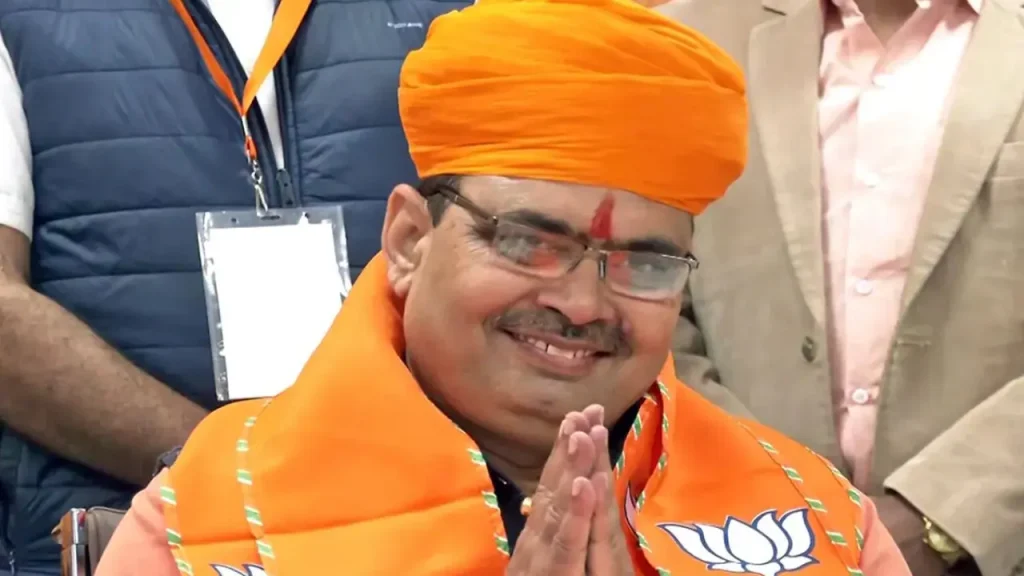Context:
Recently, the Rajasthan Prohibition of Unlawful Conversion of Religion Bill, 2025 was tabled in the Rajasthan State Assembly.
Key Provisions of the Bill

- Definition of Unlawful Conversion: The bill defines unlawful conversion as religious conversion through coercion, force, allurement or fraud, with allurement including cash, material benefits, employment, free education, etc.
- Burden of proof: The responsibility to prove that a religious conversion was not effected through misrepresentation, force, undue influence, coercion, allurement or by any fraudulent means or marriage lies on the person who has “caused” the conversion.
- Filing of Complaints: The Bill empowers any aggrieved person, his/her parents, brother, sister, or any other person who is related to him/her by blood, marriage or adoption to lodge an FIR.
- Nature of Offence: The Bill States that unlawful conversion will be under Cognizable and non-bailable offences.
- Punishments: Jail terms of up to 10 years and a minimum fine of ₹50,000 for unlawful mass conversions.
- Procedure for Voluntary Conversions: For voluntary conversions, an exhaustive process involving the District Magistrate (DM) and enquiry about the conversion process and the convertor.
Objectives of the Bill
- Protection for Vulnerable groups: The Bill aims to prevent forcible conversions, especially those of vulnerable communities like the tribals.
- Prevention of Mass conversion: The law related to right to religious freedom already exists in various States of the country but there was no statute on the said subject in Rajasthan.
- Check over misuse of religious freedom: The Constitution grants individuals the fundamental right to profess, practice, and propagate their religion. However, this right does not extend to collective proselytization, as religious freedom applies equally to both the converter and the person being converted.
Status of Anti-conversion Laws in India
- In 2015, the law ministry proposed that a national law against forced and fraudulent conversions couldn’t be made because maintaining law and order is a state responsibility under the Indian Constitution.
- In an affidavit filed in the Supreme Court in 2022, the Union Ministry of Home Affairs said that the right to religion did not include the right to convert other people to a particular religion, especially through fraud, deception, coercion, allurement, and other means.
- If this bill gets passed, Rajasthan will join 11 other states: – Odisha, Arunachal Pradesh, Gujarat, Chhattisgarh, Karnataka, Jharkhand, Haryana, Uttarakhand, Himachal Pradesh, Uttar Pradesh and Madhya Pradesh – in having an anti-conversion law.
Criticism of Anti conversion laws in India
- Violation of Fundamental Rights: Anti-conversion laws adopted by the Indian states have been scrutinised for their vague and extraordinarily broad language, which clashes with the fundamental right of freedom guaranteed under the Indian Constitution.
- Burden of Proof: The burden of proof has been shifted to the accused violating principles of natural justice.
- Impact on Interfaith Relationships: The ambiguity in the law and long-drawn process for voluntary conversion can be misused to target interfaith couples, particularly those involving Hindu-Muslim relationships.
SC’s judgments relating to anti-conversion laws
Rev Stanislaus case (1977): The Supreme Court ruled that the right to practice and propagate religion does not include the right to convert others.
- The Supreme Court stated that Fraudulent or induced conversion impinged upon the right to freedom of conscience of an individual apart from hampering public order and, therefore, the state is well within its power to regulate/restrict it.
Sarla Mudgal case (1995): The Supreme Court decided that converting to another religion for marriage is allowed. However, it made clear that such conversions cannot be used to avoid legal responsibilities or obligations.
Hadiya Marriage case (2018): The Supreme Court upheld that adults have the fundamental right to marry and convert to another religion of their choice, asserting that the state should not interfere in an individual’s freedom to make such personal decisions.
Way Forward
- Conduct a thorough review of current anti-conversion laws across states to identify ambiguities and ensure alignment with the constitutional guarantee of religious freedom.
- Precisely define what constitutes a forced conversion, including elements like coercion, undue influence, fraudulent means, and economic pressure to prevent misuse of the law.
- Ensure that the burden of proof lies with the prosecution to demonstrate the occurrence of a forced conversion, not on the accused to prove their innocence.
- Anti-conversion laws should not target specific religions and should be applied equally across all faiths.

